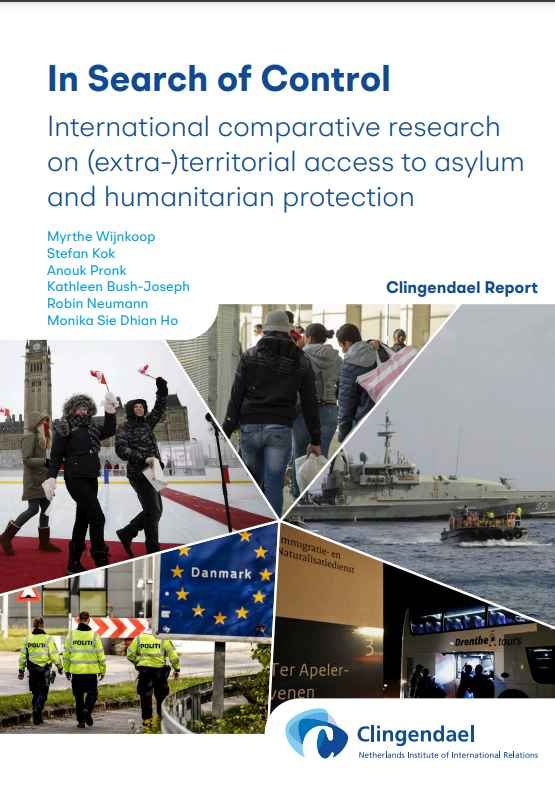By Myrthe Wijnkoop, Stefan Kok, Anouk Pronk, Kathleen Bush -Joseph, Robin Neumann, Monika Sie and Dhian Ho
In this study, ‘In Search of Control’, current developments on access to asylum procedures and humanitarian protection in five destination countries have been studied through five separate country reports. In the synthesis report, results are compared and analysed, looking at which lessons can be learned from the North American context (Canada, United States), the European context (Denmark, the Netherlands) and the context in the Pacific (Australia). Our research shows that all these destination states are facing the same balancing act in search of control of migration. Therefore, they could and should learn from each other’s experiences in tackling this challenge. Firstly, there is a common humanitarian duty and responsibility to provide protection to those in need while demonstrating solidarity with regions facing heightened challenges due to refugee pressures and other geopolitical crises. Secondly, due to an aging population these states face increasing labour shortages, for which migration is needed. Thirdly, states want to remain in control over their borders and want to manage the influx and admission of migrants. Due to this balancing act, there are no ‘quick fixes’ in dealing with asylum migration. As these interrelated challenges are part of a global issue, innovative ways forward need to be based on solidarity and cooperation taking into account mutual interest; of those seeking protection, host countries in the region, transit countries becoming destination countries, communities within traditional destination countries, and of other destination states. To facilitate such cooperation, a clear legal framework with sound preconditions and safeguards is needed to ensure both effectiveness and the protection of the rights of refugees and migrants. This study identifies ten policy approaches that have been initiated or considered by these ‘destination states’ in order to either provide or limit access to asylum procedures and other forms of humanitarian protection. These approaches vary from interdiction to legal pathways, and from procedural measures to strategic communication, as will be briefly described below.
The Hague: Netherlands Institute of International Relations ‘Clingendael, 2024. 360p.



